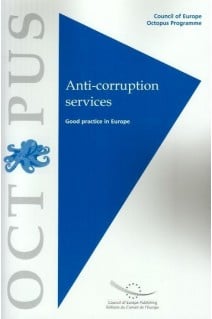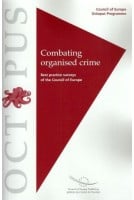


Introduction
1 - Anti-Corruption Services - A conceptual framework
2 - Anti-Corruption Services in Europe
3 - Profiles of Anti-Corruption Services In Europe
Albania, Belgium, Bulgaria, Croatia, France, Germany, Hungary, Latvia, Lithuania, Malta, Norway, Portugal, Romania, Montenegro (Serbia and Montenegro, Slovenia, Spain, "The former Yugoslav Republic of Macedonia, United Kingdom
References
Appendices





Please note that in accordance with our terms & conditions, PDF/epubs may only be purchased by private individuals.
